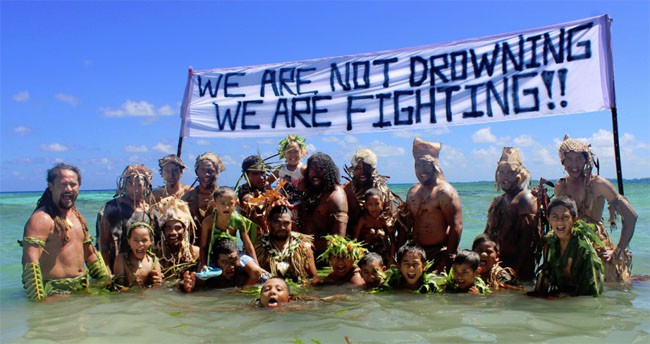Defining our values
Climate justice means that everyone deserves the right to a healthy planet, a safe future, and a voice in the decisions that affect their lives. It requires a transformative change in how we organize our societies and prioritize our values to create a just and sustainable future for all.
Chuck Baclagon
The elusive notion of climate justice has been one that has long puzzled me, especially as I’ve witnessed its proliferation in the language of many organizations leading up to the Copenhagen Climate Summit in 2009.
As a term, climate justice publicly unveiled the ethical and political dimensions of climate change, elevating it from a mere environmental concern to a complex societal issue.
However, what exactly do we mean when we say climate justice is more than an environmental issue?
My initial involvement in climate activism led me to view climate change as primarily an environmental issue, with some social justice advocates even dismissing environmental campaigns – including those centered on climate change – as “soft” pursuits that can be addressed through individual lifestyle changes and technological advancements.
Yet, over the years, my participation in climate advocacy has helped me to identify the key features of climate justice, which I hope will be of value to you as you chart your own course and forge your own climate interventions, placing both science and justice at the heart of your efforts.
Intersectionality
Climate justice speaks about an analytical lens that frames the struggle from the perspective of intersectionality, which recognizes that addressing the climate crisis requires understanding the issue beyond scientific, technical and political solutions.
It affects different communities in different ways, depending on their race, gender, class, and other social factors. It acknowledges that these factors intersect to shape the unique experiences and vulnerabilities of different groups of people to climate change impacts.
Low-income communities and communities of color often live in places that are at higher risk of flooding, extreme heat, and other climate-related dangers because of past discrimination and lack of investment. They may also have fewer resources and less political influence, making it more difficult for them to prepare for and respond to the effects of climate change, as well as to have a say in decisions about climate policy.
To achieve intersectional justice in the context of climate change, it is necessary to prioritize the needs and perspectives of marginalized communities and to involve them in the development and implementation of climate policies. This includes addressing the root causes of social inequality and systemic oppression that exacerbate climate change impacts and working towards solutions that promote equity and justice for all.
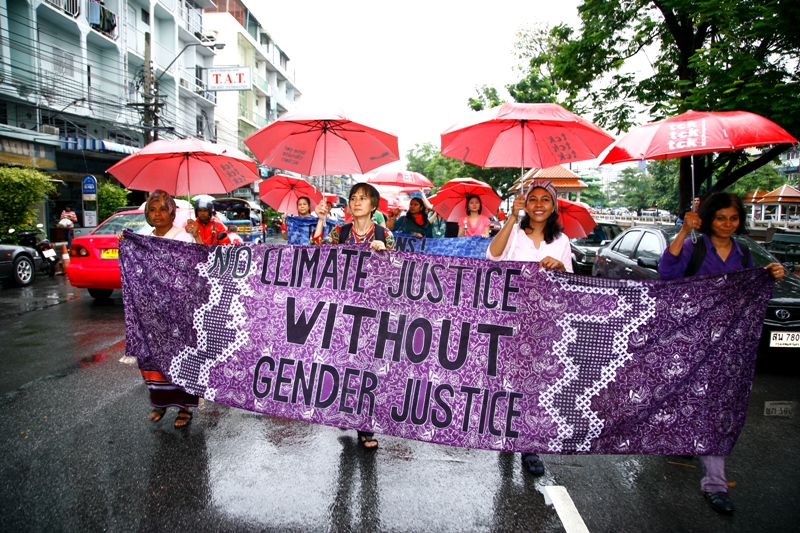
Women’s march at the 2009 UNFCCC Intersessional Meeting, in Bangkok, Thailand. Photo: Mongkhonsawat Luengvorapant/Oxfam
The intersection of feminism and climate justice acknowledges the disproportionate impact of climate change on women and other marginalized groups while advocating for their equal representation and participation in climate action.
Common but differentiated responsibility and capacities
The principle of common but differentiated responsibility and capacities is a crucial element in climate policy. It speaks to the unequal distribution of responsibility and capacity among developed and developing countries in their efforts to address the pressing issue of climate change.
At its core, this principle acknowledges that developed countries have already enjoyed the benefits of industrialization and economic growth, often at the expense of the natural world. Meanwhile, developing countries are still striving to achieve their economic growth and development, without bearing the brunt of the environmental damage that has been done.
This principle was first codified in the United Nations Framework Convention on Climate Change (UNFCCC) in 1992, and has since been a cornerstone of international climate negotiations. It recognizes the need for a nuanced, context-specific approach to addressing the climate crisis that tackles the varying degrees of responsibility and capability among nations. It is a vital step towards creating a more just and equitable future for all.
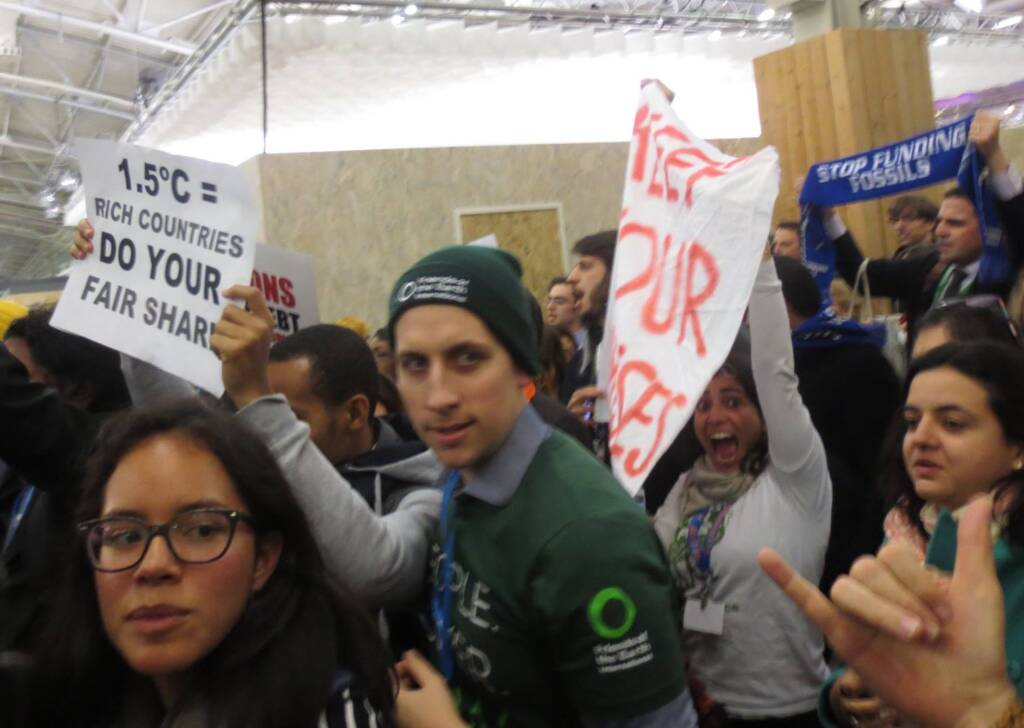
Climate justice activists hold a sit-in protest inside the conference venue of the Paris Climate Talks in 2015. Photo: APMDD
The Paris Agreement’s inclusion of the Fair Shares concept is a crucial step towards climate justice, emphasizing equitable distribution of climate action’s burdens and benefits. This agreement is a significant moment in the international community’s efforts to address the climate crisis collectively.
Frontline leadership
Climate change is not a great equalizer; it affects different communities in different ways. Those who are most vulnerable, due to race, gender, and economic status, are the ones who are hit the hardest by the impacts of the crisis. The irony is that these communities have done the least to cause the problem and have benefited the least from using fossil fuels.
Climate justice is the approach that seeks to answer the question of how to empower communities to thrive despite inequality in resources, access, and opportunities. It asks how we can tackle the systemic injustices that perpetuate and exacerbate the vulnerabilities of marginalized and oppressed communities.
The leadership of those who bear the brunt of the crisis is key to addressing this power imbalance from the bottom up. These communities, who are paying the highest price, must take the lead in shaping the solutions to the problem. Examples of such leadership emerge in various forms, from community-owned renewable energy projects to organizing efforts among disaster survivors, to international partnerships of climate-vulnerable countries pushing for ambitious action to tackle the global climate crisis.
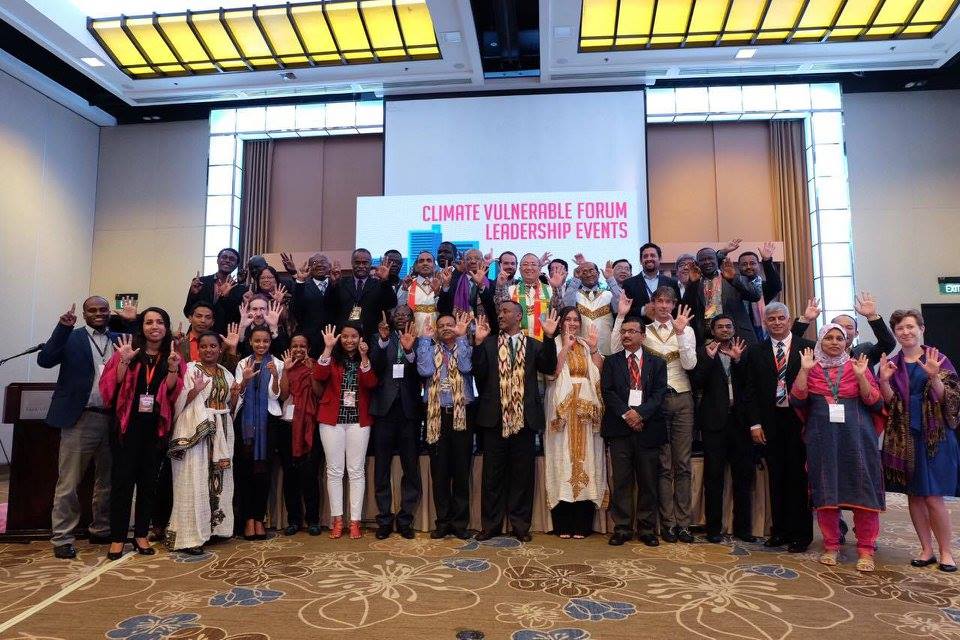
Leadership of the vulnerable
The Climate Vulnerable Forum (CVF) is a partnership of climate-vulnerable countries that act collectively to address global climate change.
Photo: AC Dimatatac/ICSC
The CVF serves as a South-South cooperation platform for participating governments and played an important role in securing the commitment to limit global warming to 1.5 degrees Celsius in the Paris Agreement, which was adopted in 2015, by rallying support from other countries, civil society organizations, and other stakeholders to push for the inclusion of the 1.5-degree goal in the conference text.
Just transition
A just transition is important for climate justice because it ensures that the shift to a low-carbon economy is socially and economically equitable, protects workers’ rights, and addresses the needs of communities that will be impacted by the transition towards a climate‐resilient and low‐carbon economy.
Among its goals is maximizing the benefits of climate action while minimizing hardships for workers and their communities by ensuring due consultation with all those affected.
It also involves research and early assessment of the social and employment impacts of climate policies, while at the same time putting in place social protection mechanisms for affected sectors.
Communities should not be left on their own to manage the impacts of the transition as this will not lead to a fair distribution of costs and benefits.
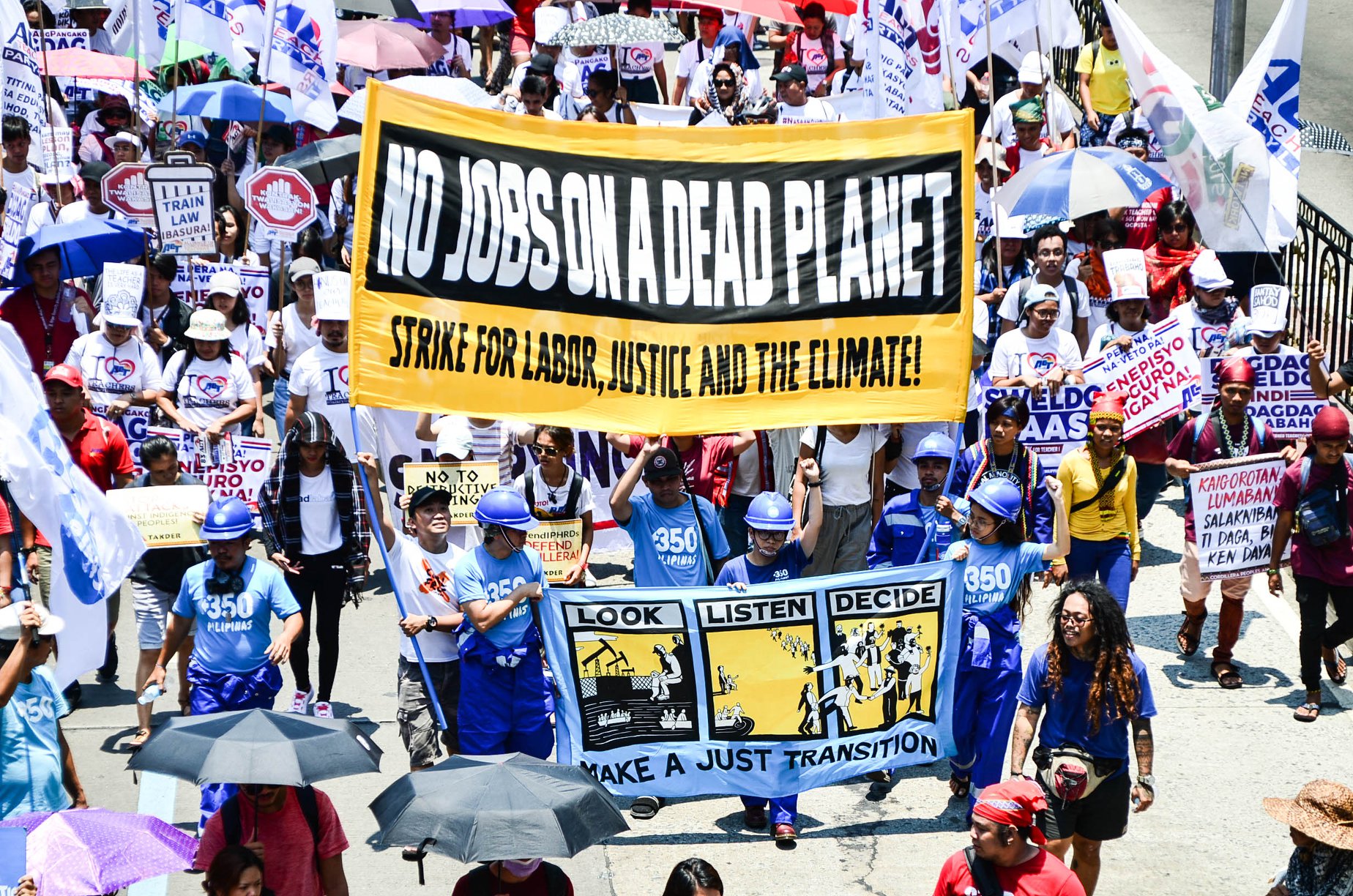
Labor Day march in Manila, 2019. Photo: Carlito Luaton
A just transition strives to ensure a fair and inclusive move to a low-carbon economy by protecting workers’ rights, addressing community needs, and reducing hardships through consultation, research, and social protection mechanisms.
Intergenerational responsibility
The movement sparked by Greta Thunberg’s Friday picket, bearing the sign “Skolstrejk för klimatet” (“School strike for climate”), has shed light on a crucial aspect of the climate crisis: failing to limit global warming to 1.5 degrees Celsius above pre-industrial levels would be catastrophic for future generations.
Intergenerational responsibility is the notion that present generations have a duty to ensure that the world we pass on to future generations is sustainable, just and equitable. It requires that we make choices today that do not compromise the ability of future generations to meet their own needs. This calls for taking a long-term perspective and considering the impact of our actions on the generations that come after us, even if we may not see the effects in our lifetime.
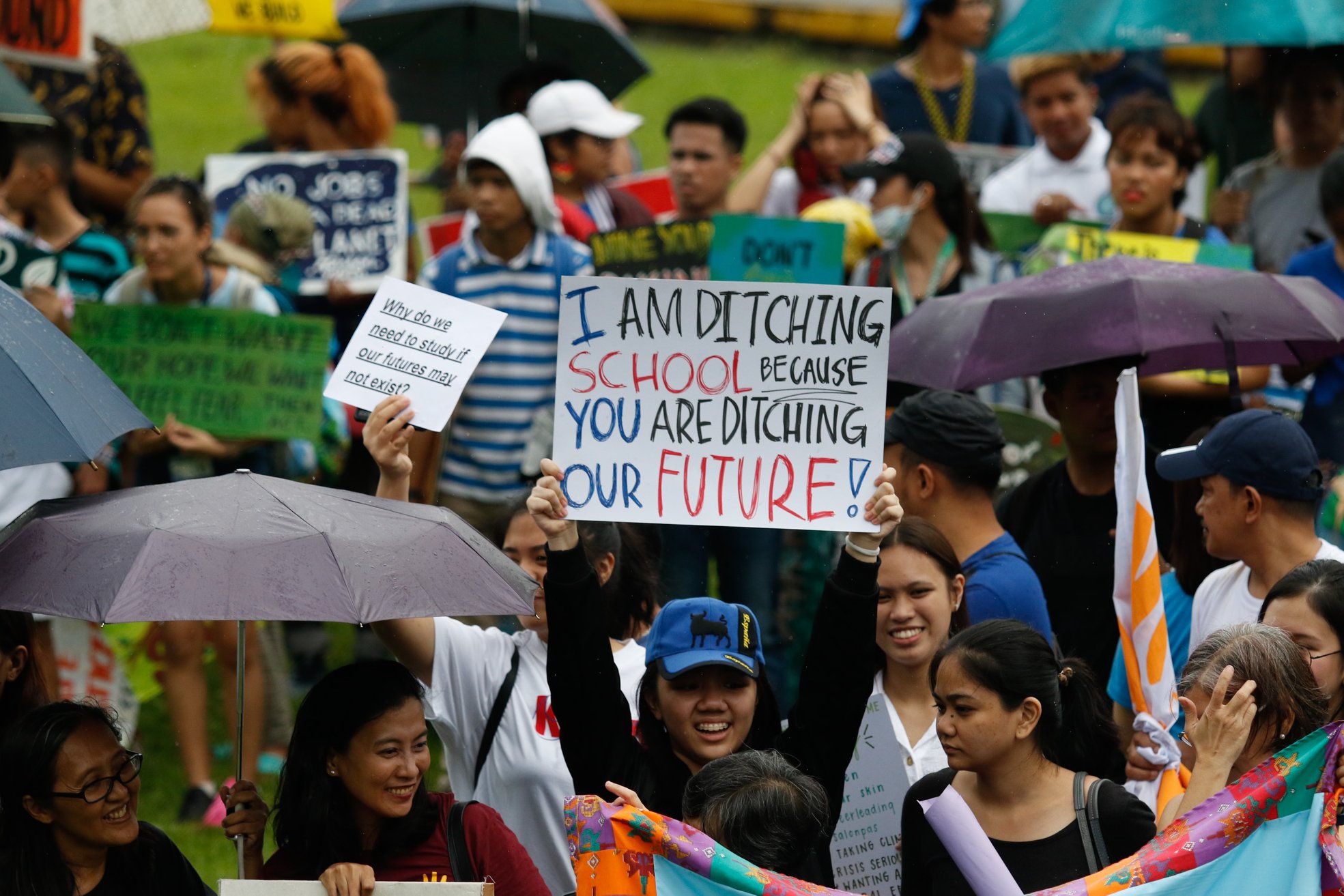
Global Climate Strike in Manila, Philippines 2019. Photo: AC Dimatatac
The Global Climate Strikes shows the strength of collective action in demanding urgent and effective solutions to the climate crisis for current and future generations.
Loss and Damage
Loss and damage climate finance is a critical component of the response to the climate crisis. It recognizes the immense toll that climate change has already taken on vulnerable communities and countries, and seeks to provide them with the resources necessary to rebuild and become more resilient.
However, it is important to remember that climate justice demands more than just financial support. We must prioritize relief and transition delivery to those who are most affected by the crisis, and ensure that these efforts are grounded in the principles of equity and justice.
The creation of a new fund for loss and damage is a significant step towards addressing the impacts of climate change on both human societies and the natural world. It is a recognition of the fact that mitigation efforts alone cannot fully address the challenges that we face.
But we must go beyond mere recognition, and take concrete action to support those who are most vulnerable. This means providing immediate relief and support, while also working to build a more just and sustainable future for all.
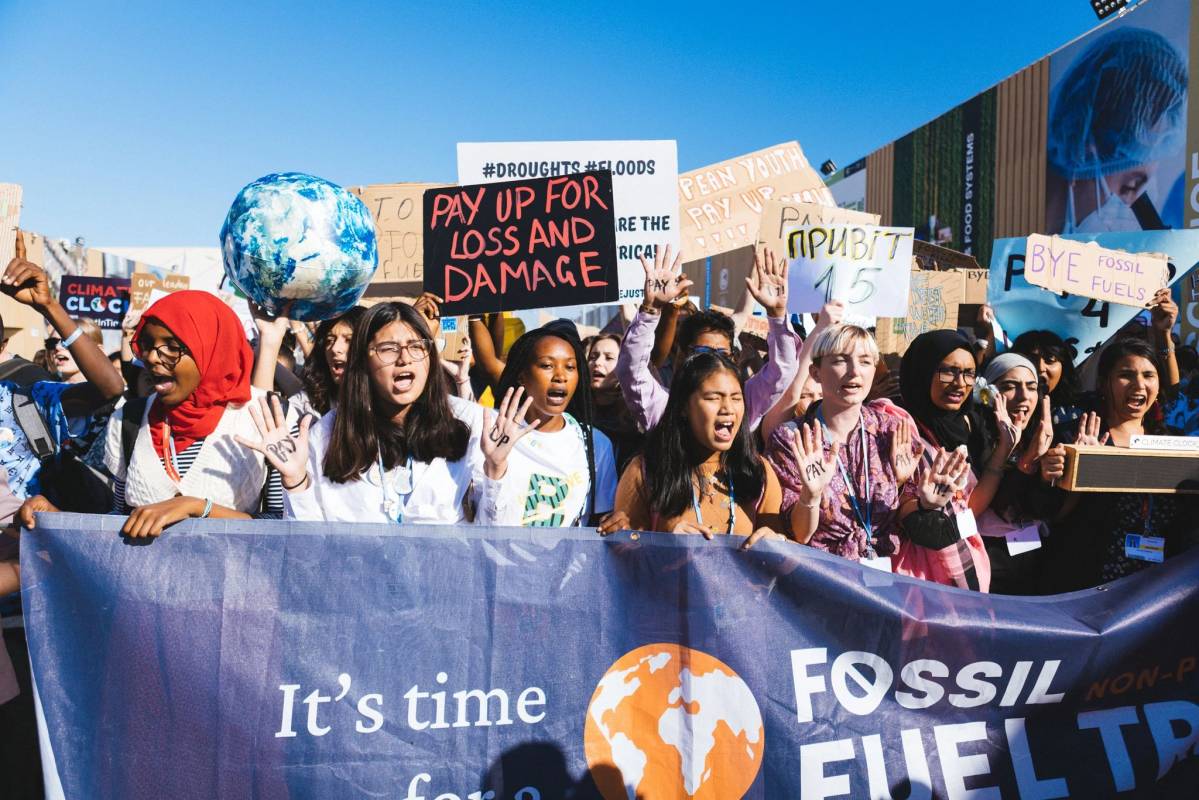
Activists demand a Fund to compensate developing countries for the impacts of climate change at the COP27 UN Climate Change Conference in Sharm El-Sheikh, Egypt. Photo: 350 .org
Loss and damage finance aims to provide support and resources to vulnerable countries and communities facing irreversible impacts of climate change.
Low-carbon development
The financial sector has a crucial role to play in mitigating the effects of climate change. Redirecting financial resources towards clean energy is a necessary intervention to ensure a transition away from fossil fuels.
To shift to a low-carbon economy, countries must change their development pathways, not just to meet emissions reduction targets set under the Paris Agreement, but also to thrive in the context of climate change. Community ownership is crucial in driving financial stimulus and political will in developing countries.
Our imperative to act is not only about collective survival, but also about changing the trajectory of development towards one that prioritizes equity and ecology over the financial interests of the wealthy. This shift must be at the heart of economic development in the context of climate change.
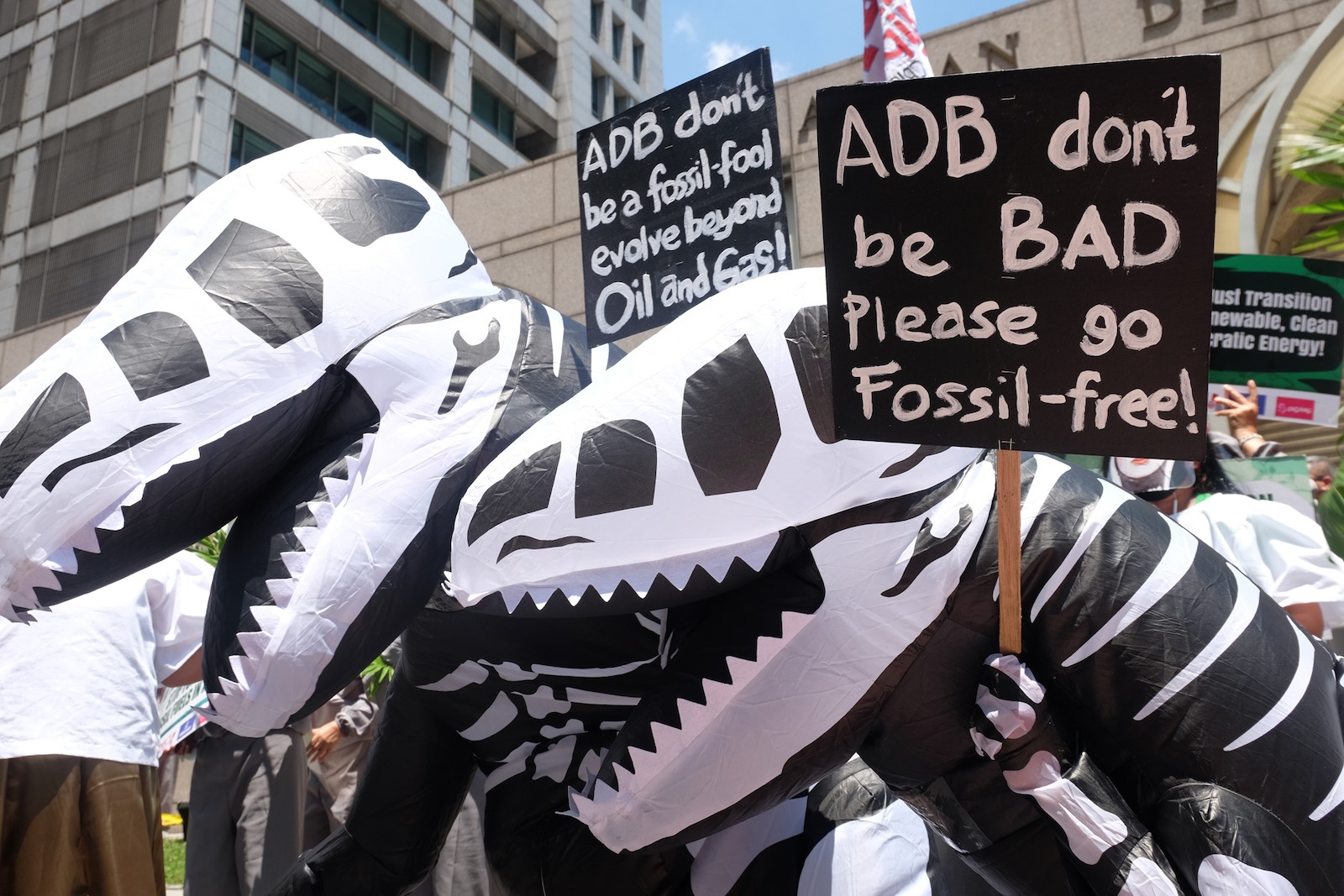
Activists call on the Asian Development Bank to evolve beyond fossil fuels Photo: AC Dimatatac
Energy transition finance provides financial resources to develop and deploy renewable energy technologies, improve energy efficiency, and decarbonize critical sectors like transport and industry.
System change
International treaties like the Paris Agreement are often touted as a global response to the climate crisis, however, they merely skim the surface of a much deeper issue. The climate crisis is merely a symptom of a more profound crisis caused by an unsustainable, wasteful, and profit-driven global economy devaluing people and the planet, treating them as disposable commodities
The challenge that we face goes beyond just technological and policy changes. We need to fundamentally transform our society to one that is more humane, sustainable, and just. This is no easy feat and will require a collective effort to create the necessary conditions for change.
Recognizing that we cannot do it alone is the first step. We must take advantage of opportunities to learn about climate change and become part of a collective that shares our values. Grounding ourselves in grassroots realities, we must engage in constant dialogue with marginalized sectors in our communities. This will enable us to launch campaigns that not only benefit our communities but also contribute to global efforts that advance the interest of sustainability, grounded in justice and equity.
The challenge that we face goes beyond just technological and policy changes. We need to fundamentally transform our society to one that is more humane, sustainable, and just.
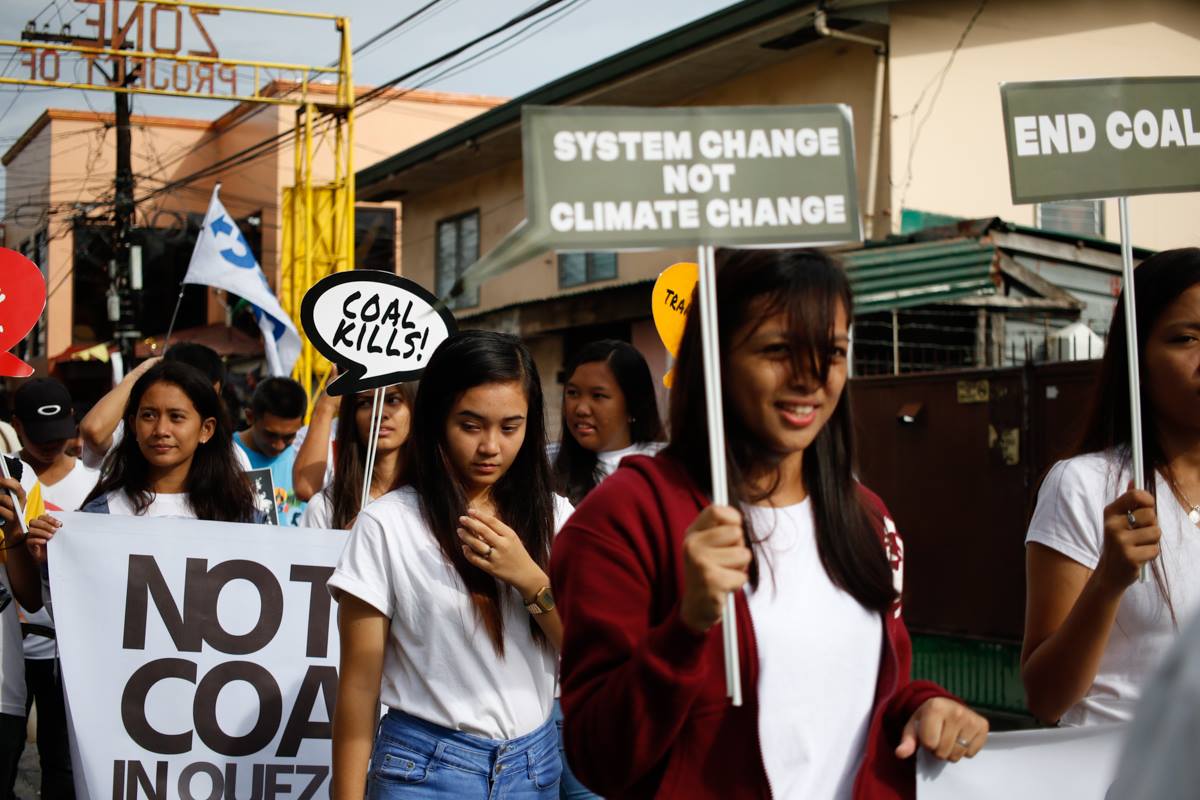
Communities protest against a proposed coal-fired power plant in Atimonan, Quezon, Philippines 2018. Photo: AC Dimatatac
Join us!
We are building a global grassroots movement to accelerate the transition to a new, just clean energy economy by supporting community-led energy solutions.

